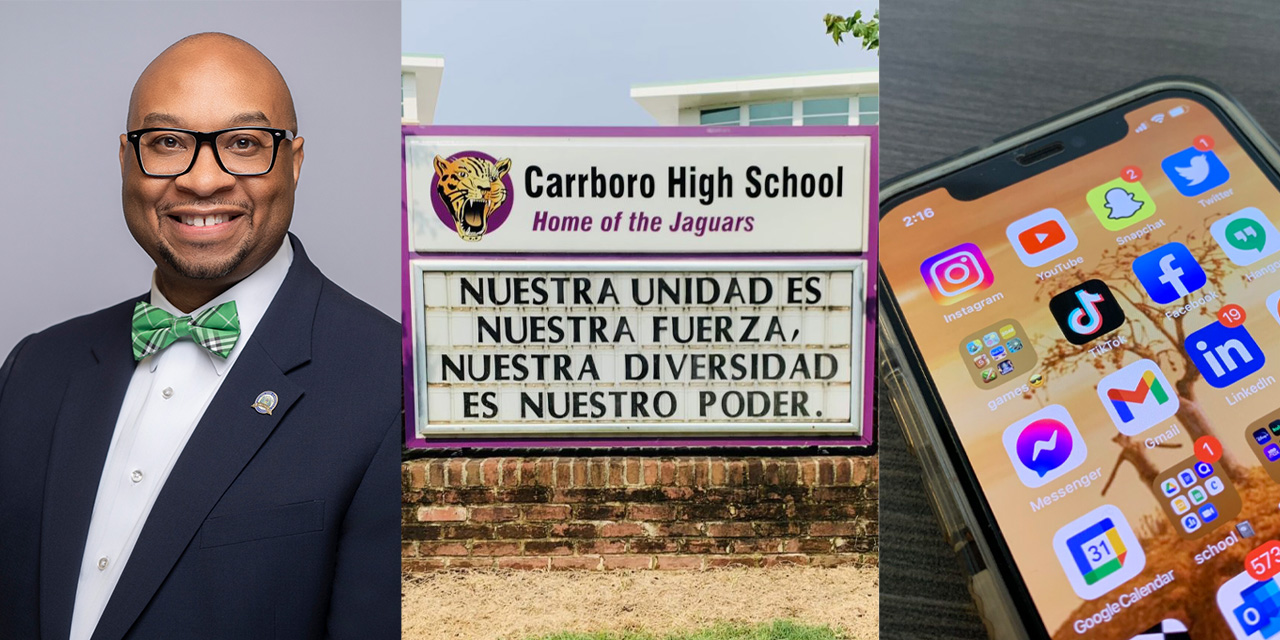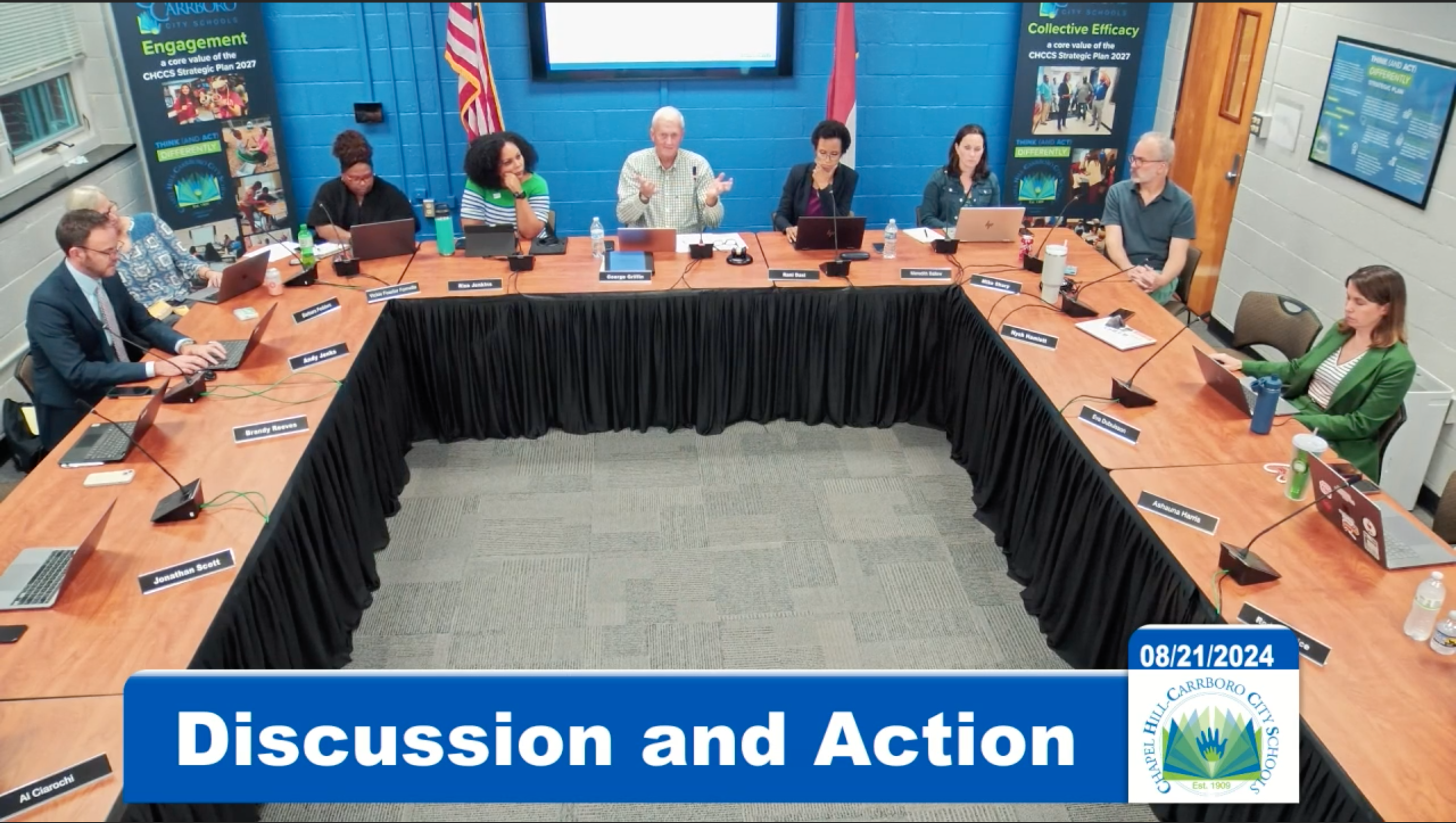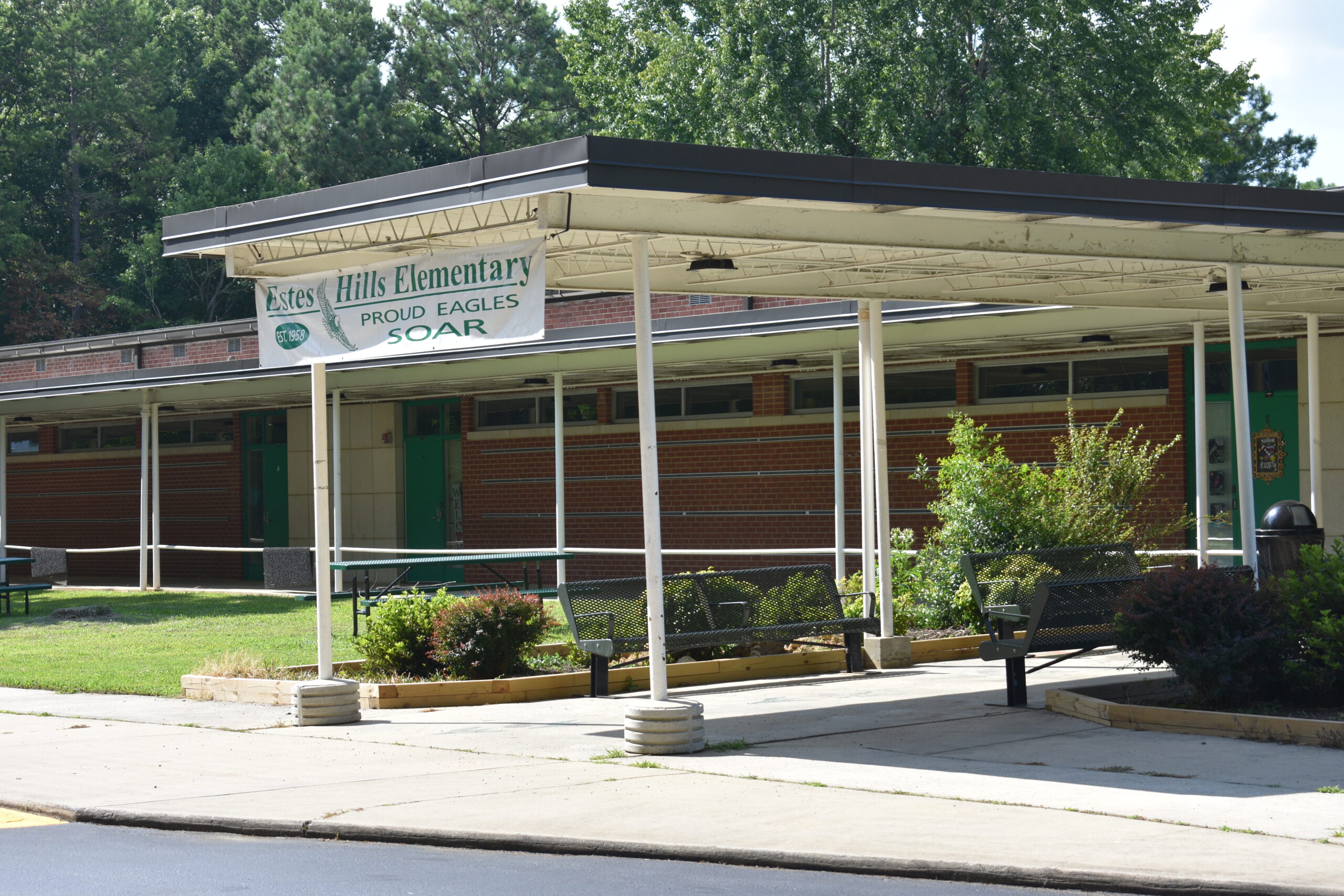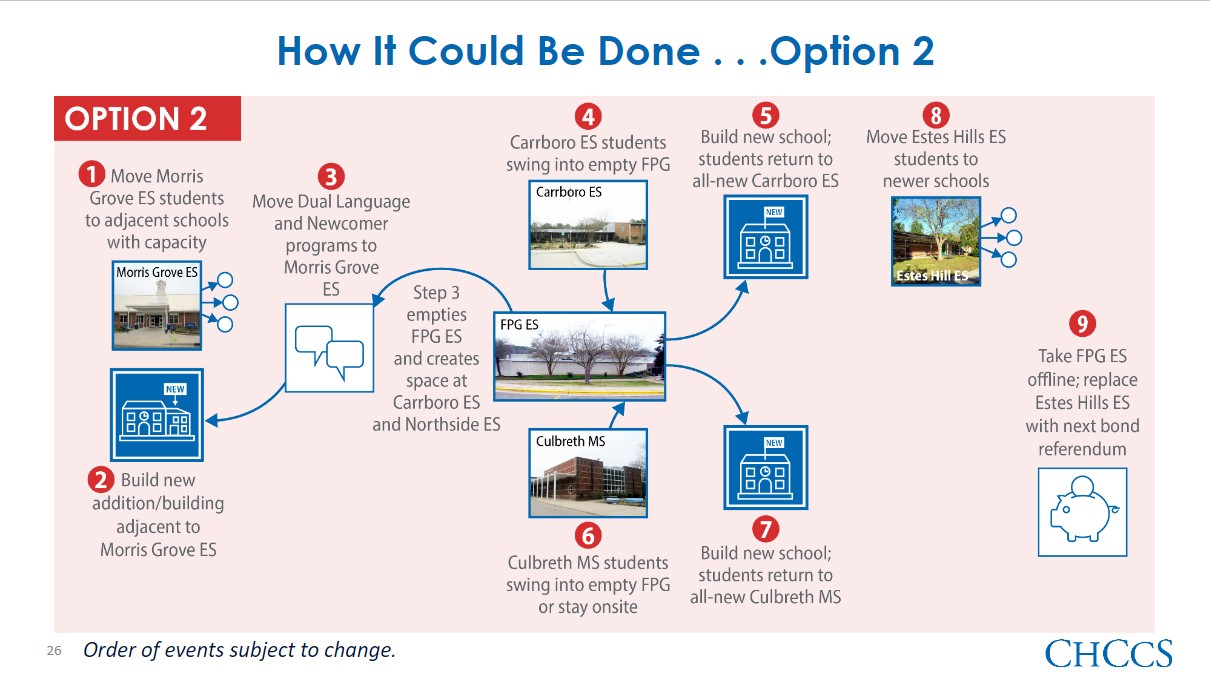After months of consideration by school board members – and even more months of research by the district’s administration – Chapel Hill-Carrboro City Schools is moving to a new class schedule for all of its high schools.
The Board of Education voted 6-0 (with member Rani Dasi absent) in favor of moving Chapel Hill High School, East Chapel Hill High School, and Carrboro High School away from their current seven-period format and to a new structure with four classes each semester – and a daily “flex” period. The new schedule will go into place for the 2025-26 school year, giving the district time to coordinate with educators, students and families on how to best adjust to the change. The recommended model from the district, however, shows the class periods will each last 80 minutes, the daily flex time will last 35 minutes, and a standard lunch break will be offered.
The impetus for the change came from the district tasking its staff to best explore how to align the schedules of its four high schools. While the non-traditional Phoenix Academy High School operates on a 4×4 block, Chapel Hill High and East Chapel Hill High have traditional seven-period classes year-round, while Carrboro High has a seven-period day with flex time. Now, the change will allow all four high schools to work off the same schedule, which district administrators and the school board members said will create more chances for inter-campus learning between high schools and Durham Technical Community College.
Board Chair George Griffin featured that update in his comments about supporting the change, describing it as a more cohesive setup for CHCCS.
“For me,” he said, “this is a part of a larger effort to continue moving in the direction of becoming a genuine school system rather than merely a system of schools. This concept actually does get at the heart of equity, plain and simple. It’s equity of opportunity for each and every student. Equity, in this situation, means ensuring that every student in our district has the same opportunity to receive the best possible education regardless of school assignment, classroom or subject assignment, grade level, or teacher assignment.”
Griffin added that the standardization represents another step toward equity among the district’s students – which many of the school board members echoed in their own reasoning. That included Meredith Ballew, who said she had early concerns about how necessary a change may be. But she said after weighing perspectives of student and teachers, she believes the block schedule allows for more flexibility.
“Overall, this district – and I would know, I’ve been a part of it for the last 43 years – has really valued one path over others,” said Ballew. “And I think we can do better. I think that this container, as some people have referred to it as, can better support these multiple pathways to success in our community.”
Board Member Barbara Fedders agreed that she was initially skeptical of changing the current model, and was one of the board members who recommended pushing back a decision for a few weeks. But she said hours of discussion — with administrators, educators, and students both from the district and others around the country — led her to better understand the benefits of the new, aligned format. Fedders added that while those who have argued in favor of the seven-period schedule say nothing is wrong, recent student surveys of their emotional well-being and stress levels around school point to how “the status quo does not seem to be serving our students well.”
“It would be fallacious to say that it’s because of the schedule,” she said, “but I raise [the point] just to say that there has been a little bit of a narrative in some of the emails we’ve gotten… along the lines of, ‘If nothing is broken, why fix it?’ And I think it is not the case that nothing is broken.”
Board Member Mike Sharp said he has felt like the new 4×4 block schedule is a needed change and he would have voted in favor during the May board meeting. Some students and parents have argued that all types of classes could be negatively affected by not being year-round or students not having the same access to certain teachers. Sharp acknowledged those perspectives and said it is evident the current system works well for certain CHCCS students.
“But,” he added, “we’re also hearing from a lot of other people that [students] have all these stresses. That was what got us here in the first place, and we need to keep reminding ourselves of that… We need to remind ourselves that we’re trying to help out the kids who feel like the current system is not supporting them as well as they could [be.]”
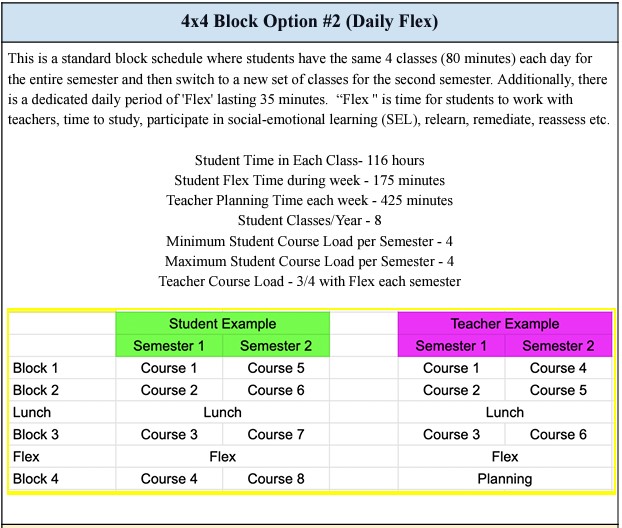
One example of the type of 4×4 block schedule the CHCCS Board of Education adopted on June 6, following the recommendation of the district’s administration. (Photo via Chapel Hill-Carrboro City Schools.)
Board Member Vickie Feaster Fornville agreed that she believes the push against the 4×4 block format has come from families for whom the current system benefits the most: high-achieving students with families of more means. She also emphasized that while the schedule contributes to part of students’ experience and opportunities, the buy-in of educators to helping all children is just as critical to outcomes.
“You have to have able-bodied, knowledgeable, caring, uplifting, enriching, encouraging people in the building,” said Fornville. “If those people are not uplifting, encouraging, consistent, intentional when it comes to teaching all of our children – whether it is seven periods in a day, one period in a day, a one-room classroom with a bathroom outside in the backyard – if you’re not trying to do that, this is not the place you need to remain. For way too long, we have had children who have not had opportunities for success in many different ways.”
After weeks of passionate debate and charged emotions about the issue, Board Member Riza Jenkins said she hopes with Thursday’s decision, the CHCCS district can move forward and be understanding to change. She also implored the schools community to believe what the elected board members say they are committed to achieving.
“You trust us with your kids – trust us with this one,” said Jenkins. “Let’s go forward… and we might have some hiccups. We’ll talk about it, and we’ll see how we can fix it and tweak it, and then we’ll go forward again.”
The board’s vote for the schedule change does not mean that community input on the topic is over. In fact, Deputy Superintendent of Teaching & Learning, Systemic Equity, & Engagement Rodney Trice said district administrators will hold community roundtables over the next year to gather perspectives and develop details for each high school. He added the CHCCS website will soon have an implementation dashboard to track the progress toward its transition and the school board will receive quarterly updates on the implementation’s progress.
“I want to assure the board, our staff and community stakeholders that this will not represent the end of a process,” said Trice, “but rather a continuation of engagement where collaboration across the district will become even more expansive.”
Featured photo via the Chapel Hill-Carrboro City Schools district.
Chapelboro.com does not charge subscription fees, and you can directly support our efforts in local journalism here. Want more of what you see on Chapelboro? Let us bring free local news and community information to you by signing up for our newsletter.


